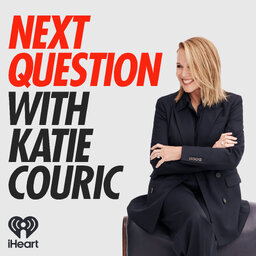Chris Hayes on the Epic Battle for Our Attention
Chris Hayes joins Katie for a thought-provoking conversation about the most valuable commodity there is: attention. As the host of MSNBC’s All In, Hayes knows how to grab it—and he's seen who else is competing for it. In his new book The Siren’s Call, he argues that attention has become the ultimate currency in a world where our brains are being rewired by the little sirens in our pockets—our smartphones. He covers it all with Katie – from how exactly we got here to the way the attention economy has radically reshaped our politics, our relationships, and the way we understand the world around us. But there’s also good news--by understanding who’s vying for our attention and how they’re doing it, we can take back control and decide where to focus our energy, rather than having it… well, captured.
 Next Question with Katie Couric
Next Question with Katie Couric


